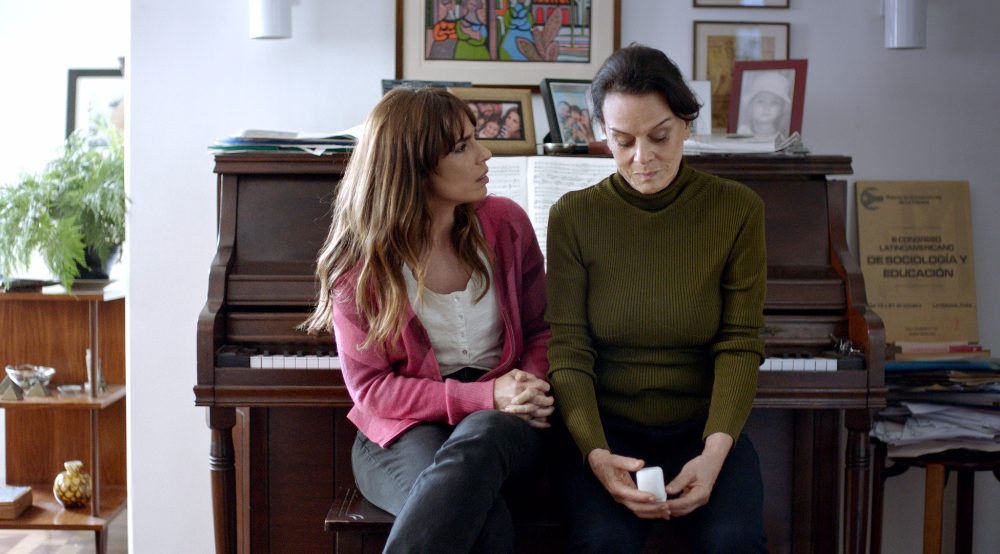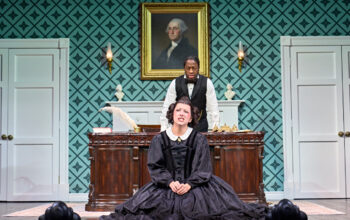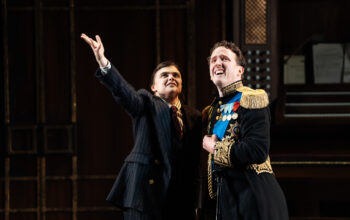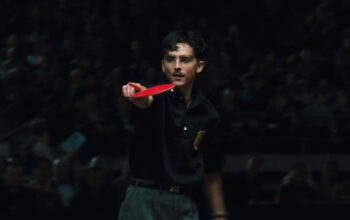Como Nossos Pais (Just Like Our Parents): An interview with actress Maria Ribeiro

Como Nossos Pais is the touching Brazilian family drama by director Lais Bodanzky, which premiered at this year’s Berlinale. This is a film that passes the Bechdel test in the opening credits, centring around Rosa, a strong woman caught between a feisty mother, two increasingly stubborn pre-teen daughters and a marriage that lost its passion long ago. After her mother, Clarice, drops a bombshell at dinner that destabilises her whole identity, Rosa must juggle the responsibilities of family life while dealing with her own existential crisis. We caught up with Maria, a strong female in her own right – being one of the world’s top-paid actresses – to discuss her inspirations for Rosa, the challenges of the role and how the film has affected her relationship with her own mother.
It’s rare to find such a female-oriented film. What were your thoughts when you first received the script?
I was completely in love with script, because in Brazil we do a lot of movies about big things: slavery, poverty, favelas, and we don’t have these psychological dramas, the little dramas of everyday. Well they’re not exactly little, because it’s our lives –but it’s very rare to find good characters for women. So when I read the script, I thought, “It’s my life! It’s my friends’ lives!”.
It’s very brave from Lais Bodansky because we don’t know what’s going to happen with this woman, Rosa. We don’t know if she’s going to find a solution, to know what she wants to do, who she is, and with whom she wants to stay. But it’s OK to say “I don’t know, I wanna try”, even if you don’t know how it’s going to end. So it’s a cinema of questions, not answers. And so I was very happy to be involved.
When you were preparing for the character of Rosa, were there any strong female women who particularly inspired you?
I had read a lot about strong women, and I’d read Simone de Beauvoir and I was also doing a TV show in Brazil with three other women – we talked about feminism and marriage and the place of women in society all the time. But I think the most difficult thing was that I don’t have daughters, I have two sons, so this for me was new – how to dare with a teenage girl. And it’s funny because when I was pregnant I was afraid of having a daughter, because I thought, “My God, I’m so afraid of not being a good girl’s mum!”. I had a tough relationship with my mum, and it’s not her fault. It’s OK, maybe her mom was tough with her too. It’s a very deep question, mothers and daughters.
So do you think the family created in the film and these relationships is something everyone can relate to?
Yes I think so, I think so. I think we never overcome our childhood – even if you were very happy, I think father and mother lasts forever, inside you. When you raise your child, you decide what you want to keep and what you want to discard from your own experiences. I think it’s kind of a replay, because we remember how they were with us, when they raised us. So it’s a kind of a new perspective, for better and for worse.
I was really touched by the relationship in the film between Rosa and Clarice, played by Clarisse Abujamra. Did you two know each other before the film?
No, no. And she only joined the cast two weeks before we started to shoot the film. So it was like that (clicks fingers). We didn’t know each other, but we talked a lot: about mothers and sons and daughters, and we became very close, very fast. Because we had to! It was lucky, because she is a very special actress in Brazil and a very special person. She’s amazing.
And you know the film changed my relationship with my own mum. I became sweeter, because there’s a part when Rosa says “Mum my daughter is kind of aggressive now with me”, and [Clarice] says, “OK, but this starts and never ends – look at you!” So I became sweeter I think. A little!
One of the main points or issues of the film is when Clarice says life is better when you accept transgression in your life, do you agree with what she says?
(Sighs) I think fidelity is a very difficult thing, but I think there is nothing better than that. I think this is not the solution, but I don’t know, I couldn’t accept an open marriage. So I think it’s crap, but I don’t know anything better. I think it’s bad without fidelity. With faithfulness, it’s not good when you have it, but it’s also not good when you don’t have it. You’re damned if you do, damned if you don’t. So people say, OK, it’s not good how we do it, let’s try it out, let’s find out together.
I guess the film is saying you have to test these things and see what works for your family.
Yeah, it’s about confidence and telling the truth. Because Rosa tells her mother, you taught me not to tell the truth, but instead taught me the lies. But then when she discovers she’s not Homero’s daughter, she decides not to tell him! So truth is not great every time, you have to choose when you say it and when you don’t. There’s no ready-made formula and that’s the most interesting thing in the film.
Jayne Rosanna Phillips
Photo: Gerhard Kassner / Berlinale
For further information about the 67th Berlin Film Festival visit here.
Read more reviews from the festival here.


























Facebook
Twitter
Instagram
YouTube
RSS